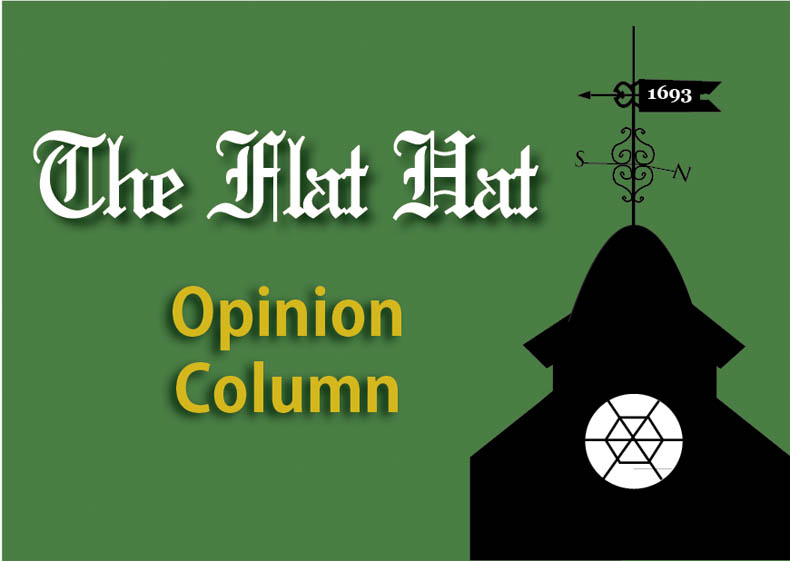A few weeks ago I was at a party with some friends when one of them asked if any of us were thinking about dying. Had she phrased this differently, it would have been no less blunt: Were any of us, at that particular moment — notwithstanding the inapposite context of the loud Top 40 and red solo cups — contemplating the inevitability of our own death?
Depending on what type of kindly Flat Hat reader you are, there are a variety of possible reactions here. If you are anything like me, you would pretend not to hear, poke around your empty pockets, and pretend you can dance (poorly). A smoother person might attempt to guess the punch line: There wasn’t one. And another might ask if my friend needed help: She doesn’t.
Before you begin to take things so seriously, however, — and believe me, we’ll get there — I have a disclaimer. The gathering was what you might call a “comedy party.” That is, the guest list wasn’t the typical random smattering of friends and friends-of-friends, but included the various comedy groups here on campus. I’ll go out on a limb and say that while people in this group might therefore be a bit more awkward and a little less filtered than your typical College of William and Mary student, their general personality is, if anything, true to form. People dedicated to comedy tend to be a tad obsessive and a little odd, but we aim to please and we get off on attention. In short, comedy often attracts and cultivates the personality of a TWAMP.
Behold, then, the actual response. My friends were enthusiastic: Drinks were set down, chairs brought out, life stories were rehashed. Turns out, my friends had been waiting for this to happen. In a group of people who freely bantered about sex and religion (and religious sex, and sexy religion), this odd taboo had been hiding just behind a wall waiting to be breached. If my friend hadn’t, for whatever reason, brought up what she was feeling, there is a chance that someone else would have asked the same exact question. But more likely, despite the enthusiasm, it never would have been brought up at all.
This could read as an endorsement for talking about death at parties. That’s not quite the recommendation here; I am sure there are better pick-up lines. What’s more compelling is that a subject that held so much interest could have very easily never come up, despite everyone thinking about it — and no one knew why this was.
As the night went on, we attempted to sort this problem out. The conversation turned to a related subject: the disparity between what we tended to think about and what we tended to say publicly. It has become a cliche to say that millennials measure their self-worth by “likes” or “followers.” Although this construction is simplistic, it’s true that many of us mold what we say — and how we present ourselves — based on what we believe makes us look impressive, well-adjusted or interesting.
This is what the writer David Foster Wallace, in his short story “Good Old Neon,” calls “the fraudulence paradox.” In that short story, he wrote: “The fraudulence paradox was that the more time and effort you put into trying to appear impressive or attractive to other people, the less impressive or attractive you felt inside — you were a fraud. And the more of a fraud you felt like, the harder you tried to convey an impressive or likable image of yourself.”
But this doesn’t have to be a paradox. The paradox breaks down as soon as we realize that “likability,” like comedy, is often just a reflection of honest and difficult self-reflection.
It’s true; we’re all going to die. We might as well be honest while we’re here. Wouldn’t that be impressive?
Email Tucker Higgins at jthiggins@email.wm.edu.

